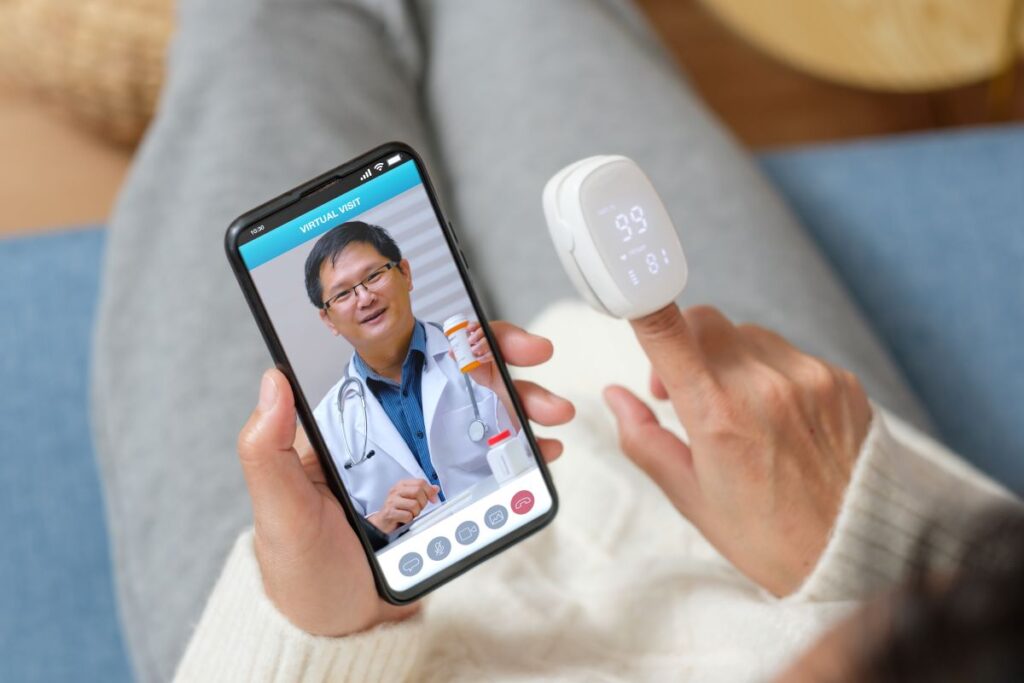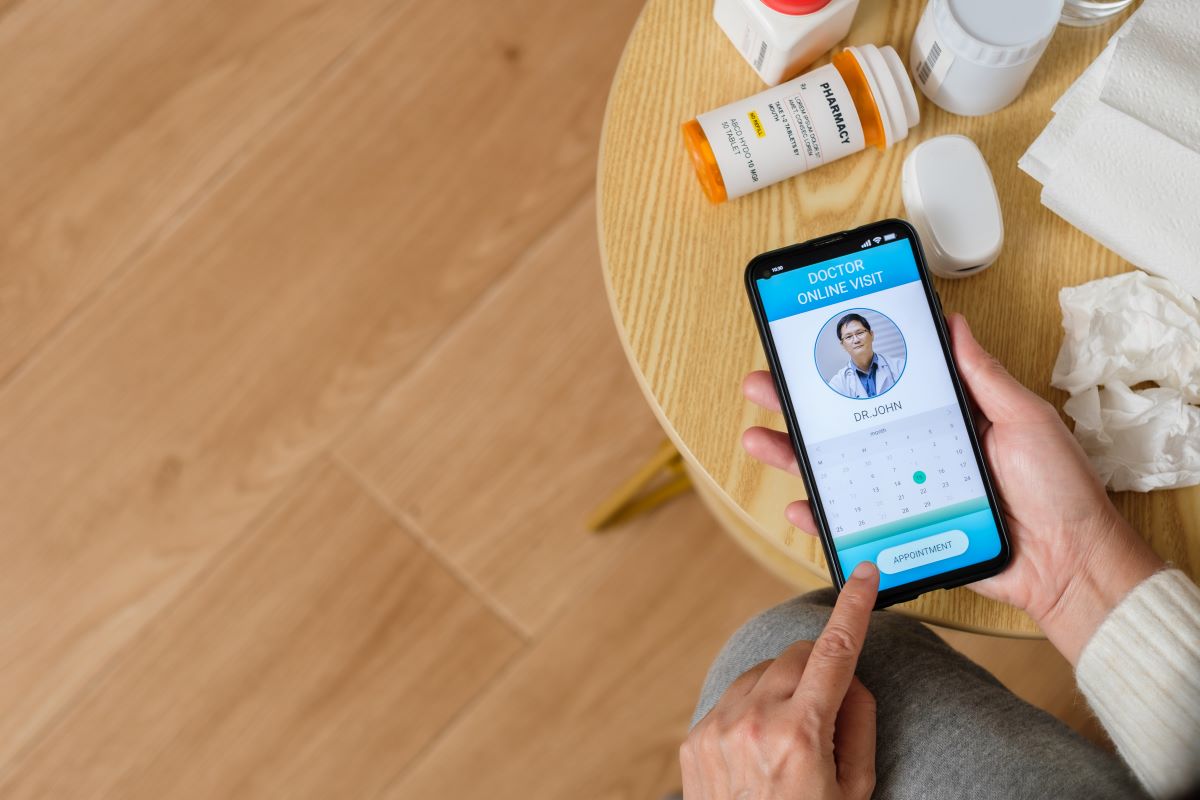The rapid evolution of mobile health (mHealth) continues to redefine healthcare, unveiling innovative trends poised to shape the industry in 2024. This blog delves into these transformative trends, highlighting their potential to revolutionize healthcare delivery and enhance patient care.
The Evolution of Mobile Health
Before delving into the specific trends, it’s crucial to recognize the overarching evolution of mobile health, or mHealth. Over the years, mHealth has transitioned from basic health-tracking applications to sophisticated platforms that integrate artificial intelligence, augmented reality, and wearable technologies. This evolution reflects a shift from passive data collection to proactive and personalized healthcare solutions, paving the way for the transformative trends anticipated in 2024.
In the early stages of mobile health, applications primarily focused on basic functionalities like tracking steps, monitoring heart rate, and counting calories. These mobile health apps provided users with insights into their overall fitness and wellness levels but had limited capabilities in terms of clinical or medical applications. However, as technology advanced and smartphones became more powerful, the potential for mobile health expanded exponentially.
The integration of artificial intelligence (AI) has been a game-changer in the evolution of mobile health. AI algorithms can analyze vast amounts of health data, including medical records, genetic information, and personal health metrics, to generate meaningful insights and predictions. This has revolutionized diagnostics, treatment planning, and disease management. AI-powered mobile health apps can now assist healthcare professionals in making more accurate and timely diagnoses, personalizing treatment plans, and predicting potential health risks.
Another significant development in the evolution of mobile health is the incorporation of augmented reality (AR) technology. AR has opened up new possibilities for medical education, surgical procedures, and patient engagement. Mobile health apps can now leverage AR to create immersive experiences for medical students, allowing them to visualize complex anatomical structures and practice surgical procedures in a virtual environment. This technology enables healthcare professionals to enhance their skills and precision, leading to improved patient outcomes.
Wearable technologies have also played a pivotal role in the evolution of mobile health. Initially limited to tracking basic fitness metrics, wearables have evolved to become powerful tools for health monitoring and early detection of various conditions. Advanced wearables can measure heart rate variability, sleep patterns, stress levels, and even detect irregularities in vital signs. By integrating wearable data with mobile health apps, healthcare providers can gain real-time insights into their patients’ health, allowing for proactive interventions and personalized care plans.
Additionally, the evolution of mobile health has led to a paradigm shift in how healthcare is delivered. Remote care has gained significant traction, especially in the wake of the COVID-19 pandemic. Mobile health apps now enable virtual consultations, allowing patients to receive medical advice, prescriptions, and follow-up care without the need for in-person visits. This level of accessibility and convenience ensures that individuals can receive timely healthcare, regardless of their location or mobility limitations.
Looking ahead to 2024, the future of mobile health appears promising. The continued integration of AI, AR, and wearable technologies will amplify the capabilities of mobile health apps, enabling more accurate diagnostics, enhanced patient engagement, personalized treatment plans, and greater accessibility to healthcare services. The focus will increasingly shift towards preventive and proactive healthcare, empowering individuals to take control of their well-being and fostering a more efficient and patient-centered healthcare system.
The evolution of mobile health has brought about significant advancements in healthcare delivery. From basic fitness tracking to the integration of AI, AR, and wearables, mobile health has evolved into a powerful tool for personalized and proactive healthcare. The trends anticipated in 2024 reflect this ongoing evolution, signifying a future where mobile health plays a central role in transforming how we access, deliver, and experience healthcare.
5 Emerging Mobile Health Trends in 2024

- AI-Driven Diagnostics: Decisive Insights at Your Fingertips
- AR in Healthcare: Elevating Patient Engagement
- Wearable Insights: Interactive Health Monitoring
- Remote Care Revolution: Embracing Virtual Consultations
- Personalized Wellness: Tailoring Healthcare to Individuals
AI-Driven Diagnostics: Decisive Insights at Your Fingertips
In the coming year, AI-driven diagnostics will revolutionize mobile health apps, offering a paradigm shift in healthcare decision-making. Advanced algorithms and machine learning will not only analyze symptoms and medical histories but also interpret medical images with unparalleled precision. This integration of artificial intelligence will empower healthcare professionals to make informed decisions swiftly, significantly improving patient care and outcomes. The application of AI-driven diagnostics becomes especially critical in time-sensitive situations, where rapid identification and treatment are imperative, potentially saving lives.
Moreover, the continual advancement of AI technology will enable mobile health apps to adapt and learn from real-world data, ensuring ongoing improvements in diagnostic accuracy and efficacy. As these apps become increasingly sophisticated, the healthcare community can expect a more comprehensive and nuanced understanding of various medical conditions.
AR in Healthcare: Elevating Patient Engagement
The immersive potential of Augmented Reality (AR) is set to redefine patient engagement within the healthcare sector in 2024. Mobile health apps will leverage AR technology to provide patients with interactive and educational experiences. For instance, AR can be utilized to overlay 3D models of organs or medical procedures onto the real world, allowing patients to visualize complex medical concepts with unprecedented clarity. This not only facilitates better comprehension but also fosters a stronger connection between patients and their healthcare providers.
Furthermore, AR will extend its reach into medical education and training, enabling professionals to simulate surgeries, visualize anatomical structures, and refine their skills in a risk-free virtual environment. The integration of AR in healthcare is poised to enhance medical learning and patient understanding, ultimately contributing to improved treatment outcomes.
Wearable Insights: Interactive Health Monitoring
Integrated wearables will continue to play a pivotal role in 2024, offering a holistic approach to interactive health monitoring. Beyond providing real-time data, wearables will increasingly focus on delivering actionable insights that promote personalized care. These devices, seamlessly integrated with mobile health apps, will not only monitor basic vital signs but also delve deeper into health metrics, such as stress levels, hydration, and blood glucose.
In addition, advancements in wearable technology will enable the development of sophisticated biosensors, capable of detecting early signs of various medical conditions. The integration of wearables into preventive healthcare strategies will empower users to proactively manage their well-being. This shift towards comprehensive health monitoring signifies a move beyond mere data collection, positioning wearables as integral components of personalized and preventive healthcare.
Remote Care Revolution: Embracing Virtual Consultations
The evolution of remote care through mobile health apps is set to reach new heights in 2024, reshaping the patient-doctor relationship. Virtual consultations will become more seamless, providing patients with direct access to healthcare professionals from the comfort of their homes. The secure and user-friendly video conferencing features of mobile health apps will not only facilitate consultations but also enable remote monitoring, transforming how chronic conditions are managed.
Moreover, continuous health parameter monitoring through mobile health apps will contribute to more proactive and personalized interventions. This remote care revolution is not merely about bridging geographical gaps; it’s about enhancing accessibility, particularly for individuals in remote areas or those with limited mobility. The evolving landscape of virtual care promises to redefine the traditional healthcare model, placing greater emphasis on convenience, patient empowerment, and proactive health management.
Personalized Wellness: Tailoring Healthcare to Individuals
2024 will witness a significant focus on tailoring healthcare to individual needs through mobile health apps. The era of one-size-fits-all approaches will be replaced by personalized wellness plans crafted through a combination of data analytics and user input. These apps will consider users’ health goals, preferences, and lifestyles to formulate customized programs encompassing nutrition, exercise, mental well-being, and preventive care.
Furthermore, the integration of artificial intelligence will allow these apps to continuously adapt and refine their recommendations based on user feedback and real-world outcomes. The emphasis on personalized wellness represents a transformative shift from reactive healthcare to proactive self-care, as individuals are empowered to make informed choices that align with their unique health profiles.
Conclusion
As 2024 unfolds, the anticipated mobile health trends promise to usher in a new era of healthcare, marked by improved patient care, increased accessibility, and a personalized approach to wellness. From the precision of AI-driven diagnostics and the immersive experiences offered by AR in healthcare to the comprehensive insights from wearable technologies and the transformative impact of virtual consultations, these trends collectively signal the ongoing transformation of healthcare delivery. Embracing these advancements, individuals worldwide are poised to experience the power of optimized care and well-being at their fingertips.
If you want to get the best digital health news, you can visit our website, Digital Salutem. We will update digital health news every week, so please keep in contact with us every week! If you have any feedback or suggestion about patient care, wearables, digital health news, or anything, please don’t hesitate to send an email to us!
Check our YouTube Channel, Healthcare Uncomplicated. To find out more about how we can help you with your Digital Healthcare Transformation, Healthcare organizational growth, or Healthcare brand positioning via our Partner as a Solution service, please get in touch via phone at +44 (0)1273 458590 or via e-mail: info@digitalsalutem.com





